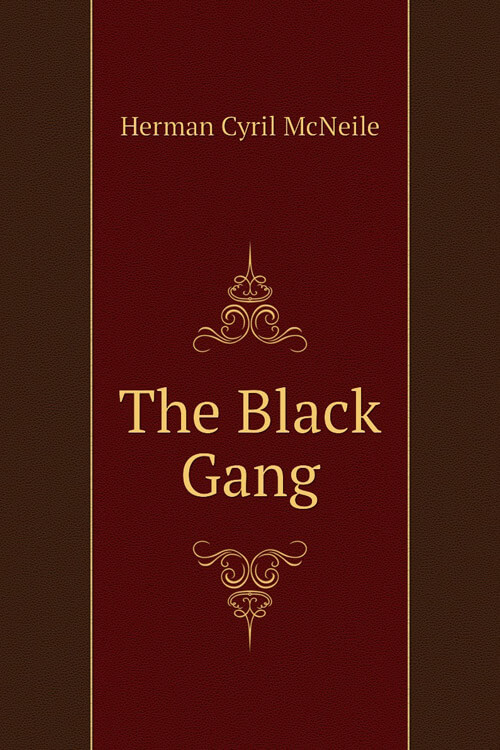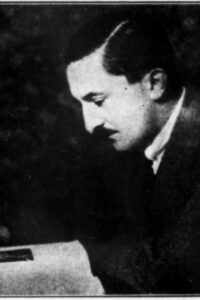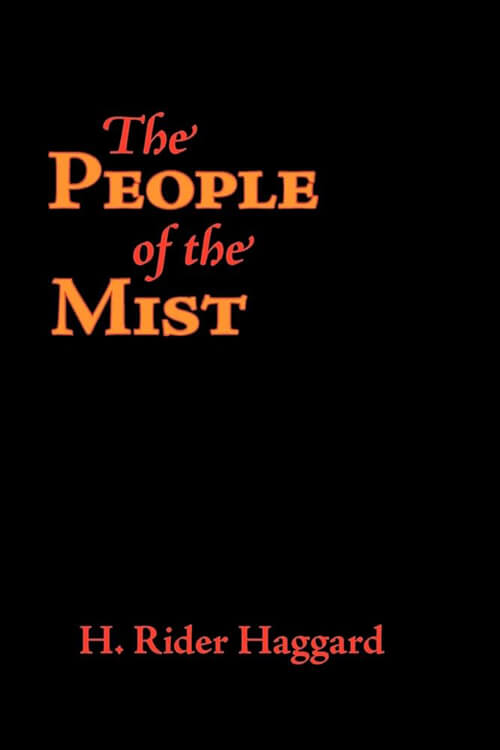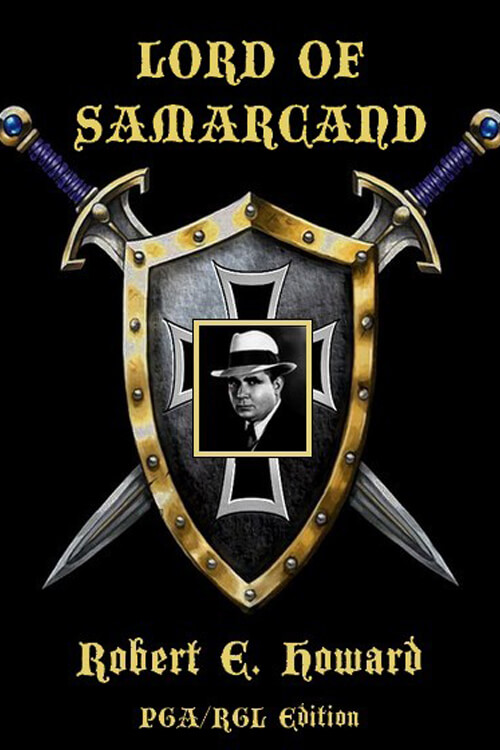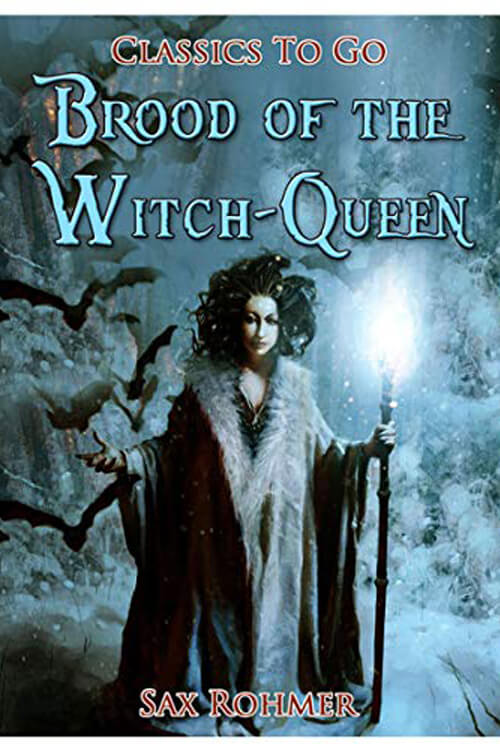
The Black Gang
Two candles guttered on a square table in the centre of the room, showing the faces of the five men who sat on the floor, leaning against the walls. Three of them were bland specimens of humanity of the type that may be seen by the thousand hurrying into the City by the early business trains. They represented the poorer type of clerk—the type which Woodbines its fingers to a brilliant orange, the kind that screams insults at a football referee on Saturday afternoon. And yet to the close observer, something more might be read on their faces: a greedy, hungry look, a shifty, untrustworthy look—the look of those who are jealous of everyone better placed than themselves but who are incapable of trying to better their position except by the relative method of dragging back their more fortunate acquaintances; the look of little men dissatisfied not so much with their littleness as with the bigness of other people. A nasty-faced trio with that smattering of education which is the hazardous thing, and—three of Mr. Waldock’s clerks.
The two others were Jews, a little flashily dressed, distinctly addicted to cheap jewellery. They were sitting apart from the other three, talking in low tones, but as the door opened, their conversation ceased abruptly, and they looked up at the newcomers with the keen, searching look of their race. They hardly glanced at Waldock; the stranger Zaboleff riveted their attention. They took in every detail of the wise, foreign face—the olive skin, the dark, piercing eyes, the fine-pointed beard; they measured him up as a boxer measures up his opponent or a business-man takes stock of the second party in a deal; then once again they conversed together in low tones which were barely above a whisper.
It was Jim who broke the silence—Flash Jim, to give him his full name, which he answered in the haunts he frequented.
“Wot abaht getting on with it, guv’nor?” he remarked with an attempt at a genial smile. “This ‘ere ‘house ain’t wot I’d choose for a blooming ‘honeymoon.”
With an abrupt gesture, Waldock silenced him and advanced to the table.
“This is Mr. Zaboleff, gentlemen,” he said quietly. We are a little late, I am afraid, but it was unavoidable. He will explain to you now why you were asked to come here and not meet at our usual rendezvous in Soho.”
Read or download Book
Herman Cyril McNeile
Herman Cyril McNeile, MC (28 September 1888 – 14 August 1937), commonly known as Cyril McNeile and publishing under the name H. C. McNeile or the pseudonym Sapper, was a British soldier and author.
Biography.
Drawing on his experiences in the trenches during the First World War, he started writing short stories and getting them published in the Daily Mail. As serving officers in the British Army were not permitted to publish under their names, he was given the pen name “Sapper” by Lord Northcliffe, the owner of the Daily Mail; the nickname was based on that of his corps, the Royal Engineers.
After the war, McNeile left the army and continued writing, although he changed from war stories to thrillers. In 1920, he published Bulldog Drummond, whose eponymous hero became his best-known creation. The character was based on McNeile himself, his friend Gerard Fairlie, and English gentlemen generally. McNeill wrote ten Bulldog Drummond novels, three plays, and a screenplay.
McNeile interspersed his Drummond work with other novels and story collections that included two characters who appeared as protagonists in their works, Jim Maitland and Ronald Standish. He was one of the most successful British authors of the inter-war period before he died in 1937 from throat cancer, which has been attributed to damage sustained from a gas attack in the war.
McNeile’s stories are either directly about the war or contain people whose lives have been shaped by it. His thrillers continue his war stories, with upper-class Englishmen defending England from foreigners plotting against it. Although he was seen at the time as “simply an upstanding Tory who spoke for many of his countrymen” after the Second World War his work was criticized as having fascist overtones, while also displaying the xenophobia and anti-semitism apparent in some other writers of the period.
McNeile’s works fall into two distinct phases. Those works published between 1915 and 1918 are his war stories and relate directly to his experiences during the First World War, while the later works are largely thrillers. His war stories were marketed by the Daily Mail and Hodder & Stoughton as a soldier’s eyewitness accounts. When he started writing thrillers, Hodder & Stoughton advertised McNeill as a “light and entertaining” writer and began publishing his works in the “Yellow Jacket” series. Magazine editors competed vigorously for Sapper’s stories and paid extravagant prices for them. Gerald Fairlie, his close friend and collaborator, has put it on record that Sapper was the highest-paid short story writer of his time.
McNeile’s early works, the war stories published before 1919, are either “plot-driven adventure narrative[s]”, such as the short stories “The Song of the Bayonet” and “Private Meyrick, Company Idiot”, or “atmospheric vignette[s]”, such as “The Land of Topsy Turvy” and “The Human Touch”. McNeill would write about 1,000 words every morning in a routine that was rarely disturbed; he took no breaks while writing and would do no re-writes until he completed his work. The academic Jessica Meyer has criticized his style as having “little aesthetic merit, being stylized, clichéd and often repetitive”; Richard Usborne agreed, adding that the female characters were “cardboard” and that McNeill was “wonderfully forgetful” about characters dead in one book and alive in the next. In the Bulldog Drummond stories, Watson identifies the central character as “a melodramatic creation, workable only within a melodrama setting”. The academic Joan DelFattore points out that while the characters and plots cannot be considered unique, credible, or well-rounded, his books “make no claim to literary excellence”, and are instead, “good, solid thrillers”. Usborne agrees and believes that McNeile wrote good stories that were flawed but well told. Meyer classifies the non-war stories as middlebrow, with “sentimental plotlines and presenting a social message about the condition of England”. His early novels, particularly Bull-Dog Drummond and The Black Gang, were structured loosely and in some ways as short stories. The academic Hans Bertens blamed this on McNeile’s lack of experience and self-confidence, noting that in his later novels, McNeile “mastered the tricks of his trade”.
DelFattore outlines the use of double adjectives to reinforce feelings towards enemies in both his war stories and thrillers, such as “filthy, murdering Boche” and “stinking, cowardly Bolshevik”. She and the scholar Lise Jaillant also comment on the dehumanization of the enemy, comparing them to animals and vermin. Watson noted the frequency of using the word “devil”—and variations—when discussing antagonists.

